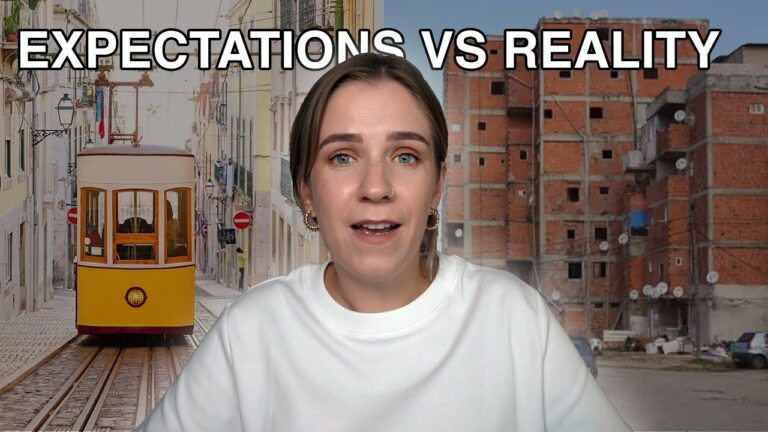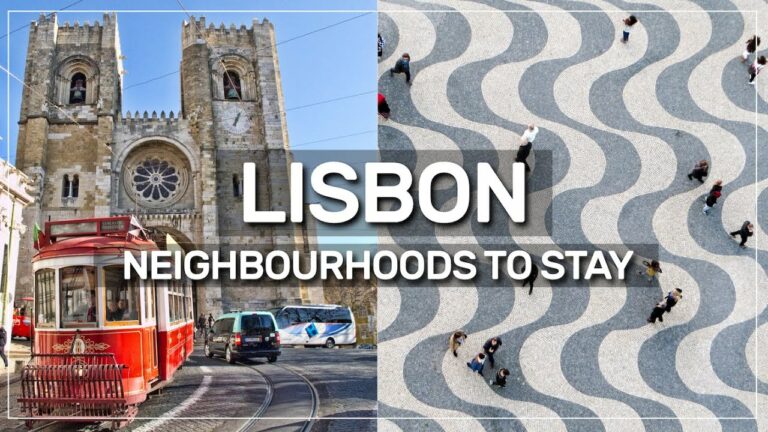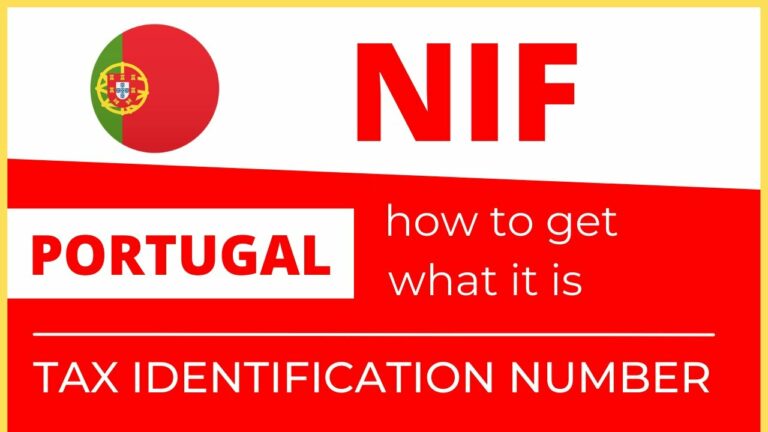Opportunities: Portuguese Education System Powering Golden Visas | GoldenVisaReviews.com
Are you considering a move to Portugal with your family and curious about the education system? As a seasoned expat who has lived in Portugal, I can tell you that the Portuguese education system is unique and filled with surprises. From the moment my family and I arrived, we were amazed at the emphasis on early education and the importance placed on learning multiple languages.
One of the things that stood out the most to us was the concept of “Escola a Tempo Inteiro” (Full-time School). This means that children attend school for a full day, from 9 am to 5 pm, with lunch and snack breaks included. This system allows parents to work full-time without worrying about childcare, and children have access to a wide range of extracurricular activities, such as music lessons, sports, and art classes.
Another unique aspect of the Portuguese education system is the focus on learning multiple languages. Children start learning English at a young age, and some schools even offer French, Spanish, or German as a second language. This emphasis on language learning not only prepares children for a globalized world but also helps expat families integrate into Portuguese society.
However, navigating the Portuguese education system can be challenging for expats, especially when it comes to enrolling in schools and understanding the grading system. From my experience, it’s essential to do thorough research and get guidance from local expat communities and professionals in the education field.
In this article, we’ll explore the Portuguese education system in-depth, providing practical tips and personal experiences to help you make the best decisions for your family’s education needs. Whether you’re considering a move to Portugal or already living in the country, this guide is designed to offer insights that will help you navigate the Portuguese education system with confidence.
Does Portugal have good education system?
If you’re considering a move to Portugal with your family, it’s natural to wonder about the education system. After all, providing your children with a quality education is a top priority for most parents. So, does Portugal have a good education system? Let’s explore.
The basics of the Portuguese education system
In Portugal, education is compulsory for children between the ages of 6 and 18. The education system is divided into three levels:
– Basic Education (Ensino Básico), which comprises nine years of schooling for children between the ages of 6 and 15;
– Secondary Education (Ensino Secundário), which lasts three years and is for students aged 15 to 18;
– Higher Education (Ensino Superior), which covers university-level education.
The quality of education in Portugal
Portugal’s education system has come a long way in recent years. In the past, the quality of education was not as high as it is today. However, the country has made significant strides in improving its education system, and Portuguese schools now rank above the OECD average in reading, math, and science.
Education in Portugal is also relatively affordable compared to other European countries. Public schools are free, and private schools tend to have lower tuition fees than other European countries.
Real-life experiences
As an expat who has experienced the Portuguese education system firsthand, I can tell you that it’s a positive experience for both parents and students. My children attended public schools in Lisbon, and we were impressed with the quality of education they received. The teachers were highly qualified and passionate about their work, and the curriculum was challenging but engaging.
One challenge we faced was the language barrier. Portuguese is the language of instruction in public schools, and while our children were able to pick up the language quickly, it was a bit of a struggle at first. However, we found that the school staff was very helpful and accommodating, and they provided extra support for non-native speakers.
What type of education does Portugal have?
If you are planning to move to Portugal with your family, you may be wondering about the education system in this beautiful country. Rest assured, Portugal has a great education system that offers excellent opportunities for students of all ages.
Overview of the Education System
The Portuguese education system follows a 12-year structure, divided into three cycles: the basic education, the secondary education, and the higher education. The basic education, also known as the first cycle, comprises four years of primary school and two years of preparatory school. The secondary education, or the second cycle, includes three years of high school, followed by vocational or professional courses for two to three years. Finally, the higher education system offers bachelor’s, master’s, and doctoral degrees at universities and polytechnic institutions.
Public vs. Private Schools
Public schools in Portugal offer free education from the basic to the secondary education levels. Private schools are also available, and they offer a more specialized education, such as bilingual and international programs. However, private schools are not free, and their tuition fees can be quite expensive.
International Schools
If you are an expat, you may want to consider enrolling your child in an international school in Portugal. These schools offer education programs in English or other foreign languages and follow international curriculums such as the International Baccalaureate. International schools are a great option when you want to maintain your child’s educational continuity or if you are planning to move abroad again in the future.
Challenges of the Education System
Although the education system in Portugal is comprehensive and high-quality, there may be some challenges for expat families. For example, the language barrier can be an issue for non-Portuguese speaking children, especially in public schools. Additionally, the curriculum may be different from what your child is used to, so it may take some time to adjust.
How does education work in Portugal?
If you are planning to move to Portugal with your family, one of the most important things you need to know is how the education system works. The Portuguese educational system is known for its quality and diversity, but it can be confusing for those who are not familiar with it. In this guide, we will explain how education works in Portugal, from pre-school to higher education.
Pre-school Education
Pre-school education is not compulsory in Portugal, but it is recommended for children between the ages of three and six. There are public and private pre-schools, but most are private. The curriculum is based on play and socialization, and children learn through games, songs, and other activities. The focus is on developing social, emotional, and cognitive skills.
Primary Education
Primary education is compulsory in Portugal, starting at age six and continuing for nine years. Children attend primary schools, which are divided into two cycles: the first cycle (grades one to four) and the second cycle (grades five to nine). The primary education curriculum includes subjects like Portuguese, mathematics, science, social studies, physical education, and foreign languages. Students are also encouraged to participate in extracurricular activities such as sports, music, and art.
Secondary Education
After completing primary education, students can choose to attend secondary school, which is divided into three years of general education followed by a further two years of specialized education. General education includes a range of subjects such as Portuguese, mathematics, foreign languages, science, social studies, and physical education. Specialized education includes technical and vocational courses that prepare students for specific careers.
Higher Education
Higher education in Portugal is divided into universities and polytechnic institutes. Universities offer more academic courses, while polytechnic institutes focus on practical courses. Both types of institutions offer undergraduate, graduate, and doctoral programs. The most prestigious universities in Portugal are the University of Lisbon, the University of Porto, and the University of Coimbra.
How many hours is a school day in Portugal?
If you are planning to move to Portugal with your family, you may be wondering about the typical school day in Portugal. The Portuguese education system is similar to that of many other European countries, but there are some differences that you should be aware of.
In Portugal, the school day typically starts at 9am and finishes at 3pm, Monday to Friday. However, this may vary depending on the school and the age of your children. For example, younger children may have shorter days, while older students may have longer days to accommodate for more advanced coursework or extracurricular activities.
It is also important to note that students in Portugal have a mid-morning break, usually around 10:30am for about 20-30 minutes, and a lunch break that lasts for about an hour, typically from 12:30pm to 1:30pm. During these breaks, students are encouraged to go outside and participate in physical activities, such as playing football or other team sports.
It is worth noting that the Portuguese education system places significant emphasis on a well-rounded education, meaning that students are offered a diverse range of subjects, including science, languages, arts, and physical education. This approach ensures that students receive a balanced education that prepares them for the challenges and opportunities of the modern world.
If you are planning to move to Portugal with your family, it is important to research the different schools in your area and find one that aligns with your family’s values and educational goals. You may also want to consider enrolling your children in Portuguese language classes to help them adapt to their new environment and make friends more easily.
Living and studying abroad can be a daunting experience, but with a little preparation and research, you and your family can enjoy all the benefits that Portugal has to offer.
the Portuguese education system offers expats an excellent option for their children’s education. The country’s commitment to creating a world-class education system is evident in the quality of education provided by its schools, universities and educational institutions. Additionally, Portugal’s warm and welcoming culture makes it an ideal destination for expat families looking for an environment that values education and personal development. Whether you are looking to relocate permanently or temporarily, Portugal offers a range of visas, citizenship programs and golden visas to suit your needs. With its excellent education system and welcoming culture, Portugal is a top choice for expats looking to enrich their lives with new experiences and opportunities.






